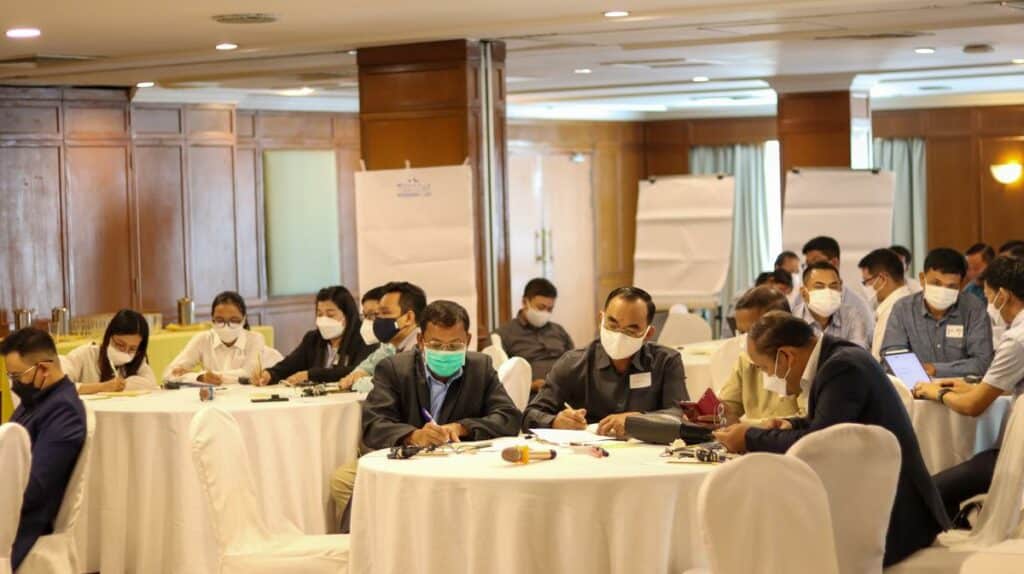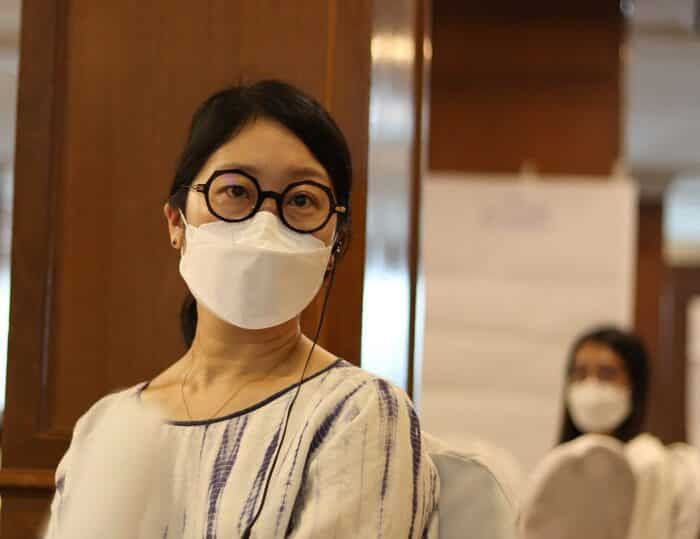Better Factories Cambodia, in collaboration with the Ministry of Labour and Vocational Training (MLVT) in Cambodia and the ILO’s Global Centre on Digital Wages for Decent Work, hosted a one-day workshop on promoting responsible digital wage payments in Cambodia’s garment industry.
The event gathered 55 participants, including 35 officials representing the Provincial Departments of Labour, the National Employment Agency, the Department of Employment and Manpower, the Department of Labour Inspection, the National Institute of Labour, and the General Secretariat of the National Council for Minimum Wage. The officials engaged with guest speakers from a leading digital financial service provider (Wing Bank), a major brand (Gap Inc), and a supporting organization (BSR).

Bronch Sopheana, Deputy Secretary-General of the General Secretariat, National Council for Minimum Wage, emphasized that advancing responsible digital wage payments in Cambodia aligns with and supports the implementation of the Royal Government of Cambodia’s Garment Strategy 2023-2027, the Policy Framework on Digital Society and Economy 2021-2035, and the National Policy Framework for Cambodia’s Economic Productivity 2022-35. Sopheana also indicated that the interventions also complement recent government efforts to transfer wage subsidies to garment workers through digital payments in response to the COVID-19 crisis. Noting that about half of exporting factories are already paying their workers digitally, he underscored the need to ensure a responsible transition for workers and factories.
Participants identified possible areas of support and engagement from the Ministry to ensure that the transition to digital wage payments is responsible. To that end, the Ministry is planning to develop an action plan that considers raising awareness about responsible digital wage payments, issuing relevant guidelines to encourage more widespread adoption of digital wages among factories and establishing partnerships with interested stakeholders to support the transition.

Sara Park, Programme Manager of Better Factories Cambodia, highlighted how digital wage payments can promote compliance in the sector by helping labour inspection authorities to detect and anticipate situations in which wages and required social security contributions due may not be paid appropriately.
Mansour Omeira, Research and Knowledge Management Officer at the ILO’s Global Centre on Digital Wages for Decent Work, presented key issues to consider when promoting responsible digital wage payments, with a focus on the role of government institutions. Furthermore, Virak Nuon, Digital Wage Officer at Better Factories Cambodia, presented the status of wage digitization among garment factories in Cambodia based on existing research and experiences.
Better Factories Cambodia and the ILO’s Global Centre on Digital Wages for Decent Work will continue their partnership with the Ministry of Labour and Vocational Training, social partners and other stakeholders to support factories and workers and accelerate the transition to responsible digital wage payments in Cambodia’s garment industry and beyond.